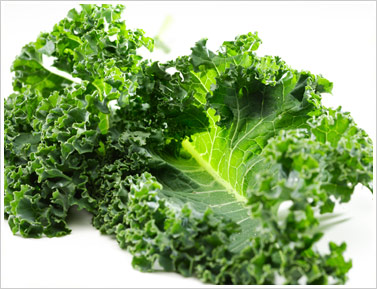Eight top foods and supplements proven to help boost your mood
 You’ve noticed her in the grocery store or in line at the post office: the woman who’s always in a good mood, quick with a smile and unflustered by the typical daily annoyances. Chances are, she hasn’t won the lottery. She just knows – as an increasing number of studies show –that what you consume has a profound impact on not only your body, but also your brain. Here are the best foods and supplements for eternal happiness, and some other positive side effects, too.
You’ve noticed her in the grocery store or in line at the post office: the woman who’s always in a good mood, quick with a smile and unflustered by the typical daily annoyances. Chances are, she hasn’t won the lottery. She just knows – as an increasing number of studies show –that what you consume has a profound impact on not only your body, but also your brain. Here are the best foods and supplements for eternal happiness, and some other positive side effects, too.
Salmon
A single three-ounce serving of wild salmon has more omega-3 fatty acids than just about any other type of seafood. Further, omega-3 fatty acids can help stabilize your mood and even make you more agreeable, found researchers from the University of Pittsburgh School of medicine. You can also feel good knowing that omega-3s may reduce your heart disease risk by as much as 90%, according to a Danish study of women and 15 to 49 published in December 2011 in Hypertension: Journal of the American Heart Association. Lead researcher Marin Strom, PhD, says women should eat fish as a main course at least twice a week.
B Vitamins
Scientists have shown that B vitamins, especially vitamin B12, improve mental health. In one Finnish study, researchers found that depressive outpatients with the highest levels of B12 battled their symptoms better than those who had lower levels of the vitamin. Additional studies also now link B vitamins with improved memory – which is good, because how can you stay cheery if you forget where you left your iPhone? Because B12 is found naturally only in animal products, and because foods fortified with the vitamin may be chock-full of chemicals, a supplement could be the answer. Look for one that will give you at least the recommended dietary allowance of 2.4 micrograms of B12 per day.
Yogurt
One cup of yogurt contains nearly a quarter of your daily need for tryptophan, an amino acid that converts to the neurotransmitter serotonin, a critical regulator of mood, sleep and agreeability. Since your body can’t produce tryptophan, you have to get it form your diet. Yogurt is also rich in B12, and a study by the Northwestern University Feinberg School of Medicine, published in the Proceedings of the National Academy of Sciences, found that the probiotics in yogurt may have the ability to fight inflammatory bowel disease. Another reason to smile!
St. John’s Wort
While recent studies have shown that the yellow-flowered plant has little benefit in treating major depression, experts still say that scientific evidence suggest that St. John’s wort can be useful for milder depression. Just be sure to talk with your doctor about the supplement, since it can have interactions with other drugs and supplement regimens.
SAMe
According to the National Institutes of Health, the chemical SAMe – found naturally in the body but also produced as a supplement – can be beneficial in reducing symptoms of depression. Some women also take SAMe to mitigate PMS. Look for a supplement containing 400 to 1,600 milligrams per day, and be sure to talk with your doctor before taking it, as it can interact with other drugs and supplements such as St. John’s wort.
Kale

There’s no doubt about it – kale is king when it comes to leafy green. The plant beats broccoli, Swiss chard and spinach when it comes to potassium, calcium and vitamins A and K. Kale is also rich in folic acid and magnesium, which could help improve your mood, according to the American Academy of Family Physicians. A new study published in the October 2011 issue of Journal of the Academy of Nutrition and Dietetics (formerly Journal of the American Dietetic Association), meanwhile, shows that kale and other vegetables in the brassica family may also reduce our risk of developing colon cancer.
Air-Popped Popcorn
You’re not just imagining the happy feeling you get from munching on a bowl of popcorn while watching a movie. Like yogurt, whole-grain carbohydrates, contain serotonin-boosting tryptophan. Plus, the crunching on popcorn can help alleviate the stress of a bad day at the office, and a 2009 study by researchers at the University of Scranton in Pennsylvania found that popcorn is a good source of fiber and antioxidants. Just be sure to skip the butter and salt – sprinkle it with Chile powder, smoked paprika, or even a little anti-inflammatory cinnamon instead.
Valerian
Used since ancient Greek and Roman times, this herb has long been thought to battle sleep disorders and anxiety. The plant, some scientists believe, may help increase amounts of the chemical gamma-aminobutyric acid in the brain – producing a similar but weaker effect to such drugs as Valium. If you find that sleep deprivation is putting you in a bad mood, steep a cup of boiling water and two to three grams of dried root for five to 10 minutes and drink the tea an hour or two before bedtime.
Source CleanEatingMag

